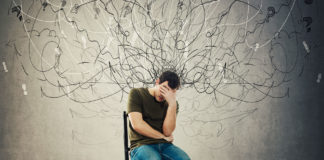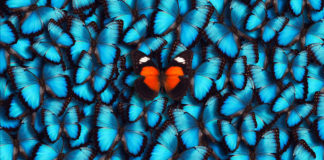Lies: the anatomy of a social pathology
"You? Fat? No way!" "With all due respect, officer, that wasn't a red light!" Every day, billions of lies leave the mouths of billions of people. Lying is a moral pollution that we declare harmful, but seem to believe is indispensable in life.
The homeless influencer. An open ended story
Joaquín Carmona had 16,000 followers on Twitter, and his posts about Spanish athletics were appreciated even by sport professionals. None of his followers had ever met him in person, and when silence fell on his account for three months, people began to look for him, write to him and ask who Carmona really was.
Why be moral?
“No doubt equality of goods is just; but, being unable to cause might to obey justice, men have made it just to obey might. Unable to strengthen justice, they have justified might; so that the just and the strong should unite, and there should be peace, which is the sovereign good....” (Blaise Pascal, Thoughts)
The need for certainty
As we look at ourselves from the outside, taking our life seriously becomes difficult. This loss of confidence, as well as the attempt to regain it, are both matters related to the meaning of life. – Thomas Nagel, View from Nowhere
How to embrace change without changing who we are
Change is the only constant in life, especially the kind that comes unexpectedly and makes us believe that we cannot give in to it without giving up on ourselves, or turning into something we are not.
The “men’s shed” solution for male loneliness
Enter the The Woodwork and Craft Club in southeast Queensland and you’ll see piles upon piles of wood and wooden goods—finished, unfinished and not even started. Everything from chests, dollhouses, stools, chessboards, lamps, birdhouses and much more.
Don’t let suffering define you
It’s strange how popular the saying What doesn’t kill you, makes you stronger is, when it’s obvious that it is not what hits you that makes you stronger, but the way you take the hit.
Seven books about change worth reading
Almost all bookstores today have a section dedicated to books on change, except that the generic name given to this category is "personal development", or "self-help".
Shutters down all over Europe: life in the time of the new coronavirus
These days we all need to hear good news—that life will soon return to normal and that we will be able to return to the troubles of yesterday, which now seem small to us. In the meantime, our lifestyle has seen changes that we could not have imagined just a few weeks ago.
3 features of self-loathing people that can transform them
In sync with our modern culture, many people obsess about self-esteem, not really knowing what it means. Giving up self-loathing seems to them an impossible task. And indeed, how does one reach self-respect? Instead of a straightforward answer, here are some insightful questions to prove that you are worthy and that you can trust yourself.
Facebook, the Metaverse and a falsely promised future
Facebook is dead! Long live Metaverse! So proclaimed Facebook CEO Mark Zuckerberg to thousands of followers who tuned in to a livestream last Friday announcing the company’s rebrand.
Friendship, rarer than love? | Friendship and honesty
Romantic love is easily hurt and somewhat pretentious, especially when faced with direct honesty. Friendship is more solid.
How I discovered my questions while searching for answers
Five seconds. And everything smells of heaven, wet grass and happiness.
The slumber of the proud
One of the best-known stories told by ambitious entrepreneurs today is that if you work hard, you will have a lot.
Hope, a legacy of another world
Hope can be palpable and elusive at the same time, both reasonable and independent of logic. Yet this independence from logic is not synonymous with indifference to reason, but a victory over it. Hope has its own logic, one that changes lives for the better.


























